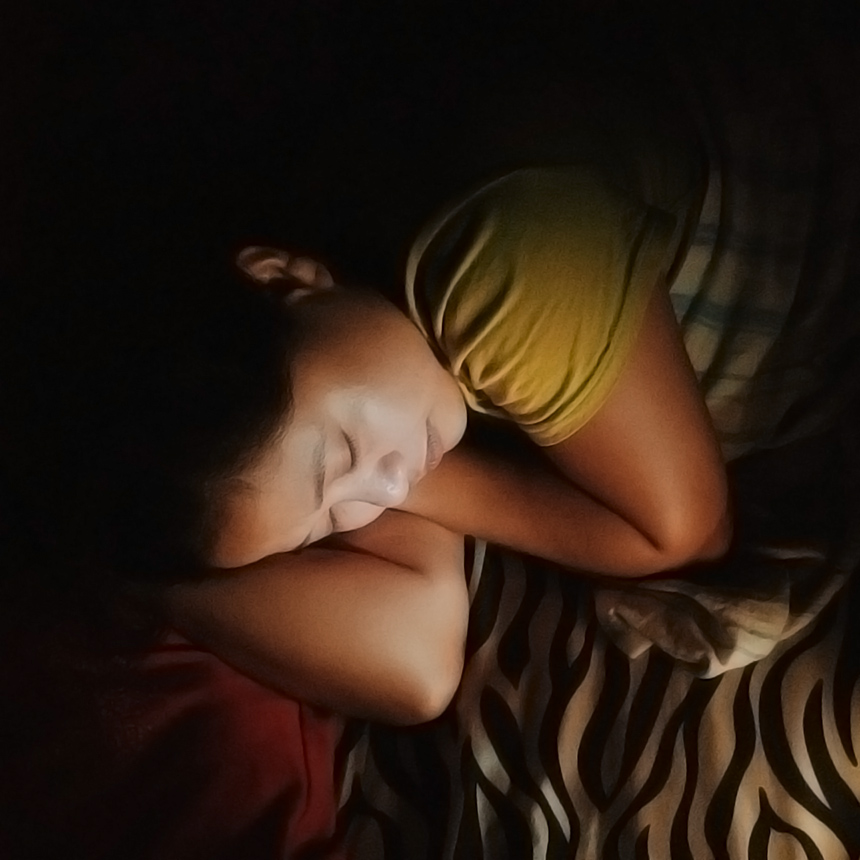
Did you know that your mental health affects your sleep? According to a study by the American Academy of Sleep Medicine, people with untreated mental illness are more likely to have problems sleeping. In fact, they are two-and-a-half times more likely to have difficulty falling asleep, wake up frequently during the night, and spend less time in deep sleep.
According to the National Sleep Foundation, adults should get between seven and eight hours of sleep each night. However, many people are not getting the recommended amount. In fact, according to a study by the Centers for Disease Control and Prevention, more than one-third of American adults are not getting enough sleep.
Poor sleep directly impacts your health and, therefore, quality of life. In other words, mental health and sleep quality are a positive feedback loop — if one goes south, so does the other, and it’ll continue until the cycle is broken.
So how is your mental health impacting your overall health, and what can you do about it? Read on to find out!
Depression and Sleep
Depression, anxiety and stress are common mental health issues that lead to sleep problems. Depression can cause insomnia, defined as difficulty falling asleep or staying asleep. Anxiety resulting from your depression can cause restless nights spent tossing and turning. And stress can lead to nightmares.
If you are struggling with depression, there are a few things that you can do to help improve your sleep.
First, make sure that you are staying active and getting exercise. Exercise releases endorphins, which can help improve your mood.
Second, make sure that you are eating healthy foods. Junk food can worsen your mood, making it even harder to get a good night’s sleep. When you support your body with nutritious food, it improves overall health and can help you feel less sluggish.
Third, try to avoid caffeine, nicotine and alcohol. These substances can disrupt your sleep.
Finally, make sure that you are getting enough sunlight during the day. Sunlight helps regulate your body’s natural sleep cycle.
Anxiety and Sleep
Sleep is essential for our physical health because it allows our bodies to rest and recharge. During sleep, our bodies release hormones that help us heal and grow. Conversely, lack of sleep can lead to health problems, including obesity, heart disease, diabetes and chronic pain.
If you are struggling with anxiety, there are a few things that you can do to help improve your sleep. First, try to stick to a regular sleep schedule. Go to bed and wake up at the same time every day, even on weekends.
Second, make sure that your bedroom is dark and quiet. Avoid watching television or working on the computer in bed.
Third, practice relaxation exercises before bed. For example, deep breathing exercises and visualization techniques can help calm your mind and promote sleep.
Your Physical Health and Sleep
Again, avoid caffeine, nicotine, and alcohol before bed. This will improve far more than your physical health; it will also support your sleep and mental health.
Research has shown that poor sleep can lead to illnesses like obesity, heart disease, and diabetes. So if you are struggling with these issues, the problem might be the quality of your sleep.
Not getting good sleep makes you foggy, tired and slow. As a result, your brain is tired and so are your muscles. This makes it challenging to find the energy to do physical activities, feeding into poor physical health.
Addiction and Sleep
People addicted to drugs or alcohol often have difficulty falling asleep and staying asleep. This is because addiction can be highly stressful, causing anxiety and depression. In addition, addiction can have several adverse effects on sleep.
First, addiction can be highly stressful, which can lead to insomnia.
Second, side effects of addiction are anxiety and depression, both known for making it difficult to fall asleep and stay asleep.
Third, alcohol and drug abuse can interfere with the body’s natural sleep cycle, making it difficult to get a good night’s sleep because your body cannot enter REM sleep, the stage of sleep that is most critical. Without entering the deepest sleep cycle, your brain can’t recharge and repair itself.
Finally, addiction can cause fatigue and daytime drowsiness, making it difficult to stay awake during the day or stay focused on a task and complete it well.
You Deserve a Higher Quality of Life
While getting better sleep can help improve mental health, sometimes you might find yourself facing issues that are too big to tackle through lifestyle changes alone. If you’re struggling, we want to help.
At LifeWorks NW, we provide mental health, addiction, depression and holistic health solutions that feature the level of support that people need, when and how they need it. In addition, we promote a healthy community by providing quality and culturally responsive services from children to the elderly and everyone in between.
Start a journey towards your better life for yourself or a loved one with support from LifeWorks NW. For more information about our services or to make an appointment today, click here.


